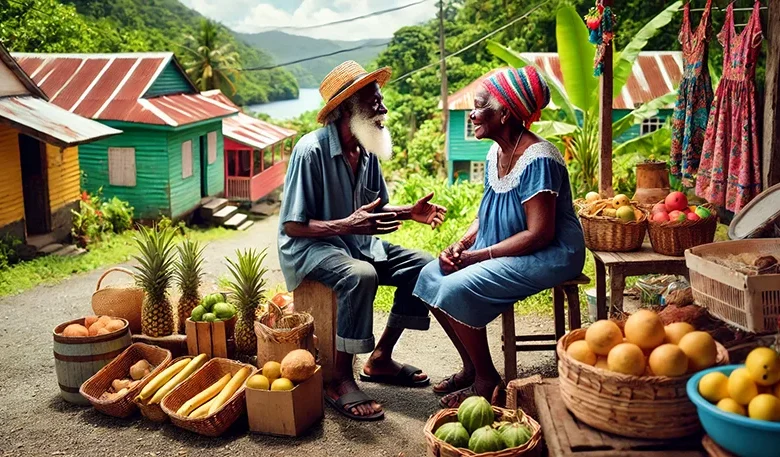Dominica’s Kwéyòl (Creole)

Dominica’s Kwéyòl (Creole), or Patois, is a language deeply intertwined with the island’s culture and history. It developed during the colonial era to communicate between enslaved Africans and French colonisers. Combining elements of French and West African dialects, Dominica’s Creole has evolved into a unique representation of the island’s identity. Although spoken in other Caribbean nations like Haiti and St. Lucia, each island has its distinct variation.
The Cultural Role of Kwéyòl in Dominica
Kwéyòl plays a significant role in Dominica’s Eco-Tourism initiatives by highlighting the island’s rich cultural heritage. It is a central feature of festivals like Jounen Kwéyòl, Heritage Day and the World Creole Music Festival, which celebrate Creole music, dance, and cuisine. These festivals attract visitors worldwide, bolstering Dominica’s tourism industry while preserving its linguistic traditions.
Kwéyòl’s Influence on Dominica’s Identity
Kwéyòl is a cornerstone of Dominica’s Creole Culture, influencing not just language but also fashion, music, and even business practices like the National Export Strategy. The language is increasingly seen in signage and advertising, underscoring its importance in the country’s national identity. Despite these efforts, further measures are needed to standardize its usage and promote fluency across generations.
Education for Kwéyòl
Efforts to preserve and promote Kwéyòl in Dominica have been ongoing through various initiatives. Programs like Espeweyans Kwéyòl on local radio stations have played a key role in maintaining the language’s presence. However, challenges persist, particularly in making Kwéyòl more widely spoken among younger generations. The Dominica Government has taken steps by integrating Kwéyòl into school curriculums and media to encourage everyday use.
In addition, there are efforts to formalize Creole lessons in schools. Advocates, such as the late Felix Henderson, have long championed the inclusion of Creole in education to ensure future generations stay connected to their cultural heritage. This is especially crucial in preserving Creole traditions across Dominica, particularly in West Coast communities, where cultural preservation efforts are increasing. By embedding the language in education, Kwéyòl can continue to play a vital role in Dominica’s rich Creole culture.
While the government is taking steps to support these initiatives, further collaboration with educators and communities is needed to ensure widespread success




